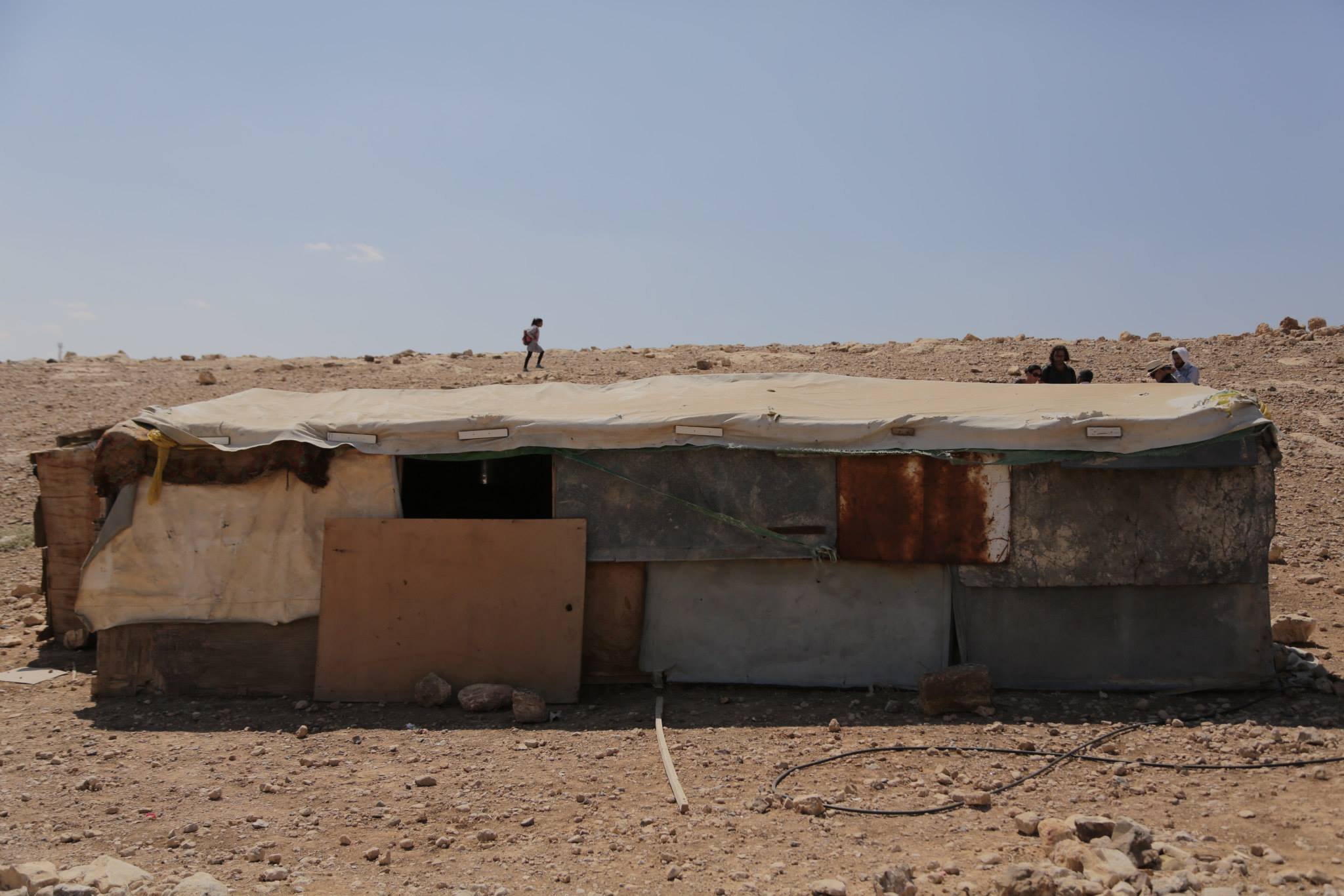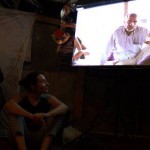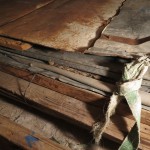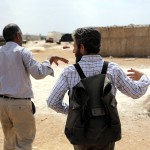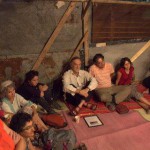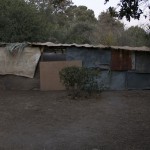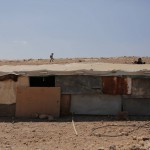Period
2014
Proposed by
High&Low Bureau
Location
Jerusalem
External links
About the project
In 2014, Sala-Manca Group—founders and artistic directors of the Mamuta Art and Media Center—were invited by the Hansen House in Jerusalem to create an ‘innovative’ sukkah (the name given to the temporary huts used by the ancient Hebrews during the exodus from Egypt). The holiday of Sukkoth commemorates the exodus through the commandment to build a sukkah—a temporary structure topped by a covering of fronds.
Rather than construct an extravagant new sukkah, the artists decided to delve into the sukkah’s charged meaning in the Israeli context—proposing a contemporary reading of the sukkah as both concrete object and symbol.
This artists’ search took them to the Palestinian territories to meet with members of the al-Korhan family of the Jahalin Bedouin tribe. The Jahalin live in the Judean Desert, not connected to the water or electricity grid, in temporary structures built with found materials (iron, wood taken from constructions sites, aluminum from water heaters, etc) and under constant threat of demolition and displacement by Israel’s Civil Administration.
The artists offered to purchase one of the family’s shanties. The ‘illegal’ Bedouin home, fated for demolition, changed its status and became not only a legal Israeli sukkah, but also a valuable piece of contemporary art. The al-Korhans used the money to build a new dwelling from better materials, while the artists proposed the sukkah for sale as a work of art. Eternal Sukkah, as the piece is named, was recently acquired by the Israel Museum for its permanent collection. Half of the sum will be given to the al-Korhan family as payment for a new sukkah, to be sold in turn to another art museum in order to slowly renovate the family’s shanties—using the art market as a platform for art and social change.
External links
About the artist
The Sala-Manca Group is a group of independent Jerusalem-based artists that creates in different fields: performance, video, installation and new media since 2000. Sala-manca’s works deal with poetics of translation (cultural, mediatic and social), with textual, urban and net contexts and with the tensions between low tech and high tech aesthetics, as well as social and political issues. The SALA-MANCA GROUP is Lea Mauas and Diego Rotman, artists born in Buenos Aires, who live and work in JLM.
